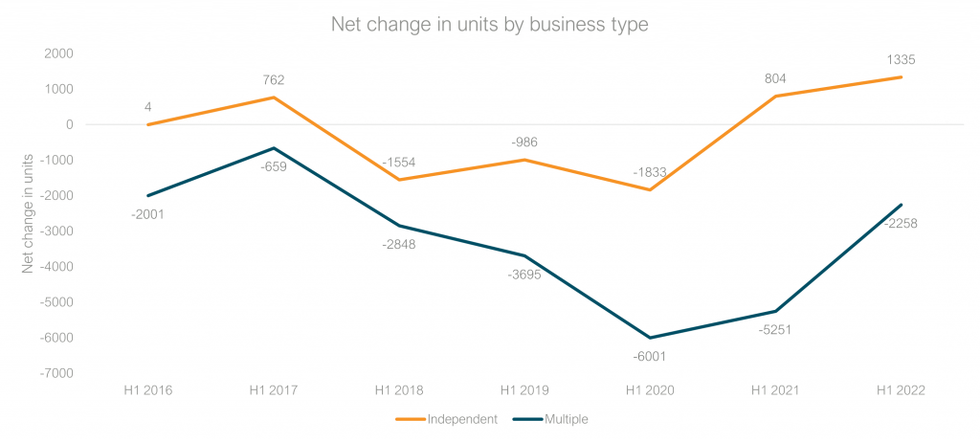The retail and leisure market in Britain has shown signs of stabilisation in advance of a tough winter, according to a new report by the Local Data Company.
The analysis, which covers the first half of 2022, indicates record performance for businesses, with the lowest level of store closures seen since H1 2018. Findings suggest that market activity has well and truly resumed following the pandemic, and the sector is in a strong position despite looming challenges.
“Our latest analysis of the physical retail and leisure market shows a remarkable level of recovery at a time when further economic headwinds have been well-documented,” Lucy Stainton, commercial director at Local Data Company, commented.
“With store closures decreasing compared to the same time last year, in parallel with an increase in openings, the net decline in trading retail and hospitality businesses has softened significantly. The pandemic proved the final straw for a number of ailing retailers and this CVA and insolvency activity, which typified the most challenged end of the market during the COVID years, has now seemingly washed through.”

Net change in retail and leisure units improved to -923 in H1 2022, the best result since H1 2017. There were far fewer retail casualties in this period, with the number of closures falling from 26,703 in H1 2021 to 24,832 in H1 2022, the lowest closures figure since H1 2018.
After a challenging few years for chain retailers, they saw a significant year-on-year improvement, with 2,993 fewer closures than in H1 2021. Although still experiencing a net decline of -2,258 units in the first half of this year, this is a notable development, helping to close the gap between chains and independents.
Independents continued to thrive in the market in H1 2022, with a net increase of 1,335 units, up from a net increase of 804 in H1 2021.
The trend for shopping local has continued following the lockdown period, to the benefit of independent retailers such as convenience stores, which performed particularly well. However, rising operational costs could strongly impact independent stores in particular in H2 2022, the report noted
“Independents in particular have continued to flourish as consumers remain loyal to their local high streets. However, we can’t be naïve to oncoming economic pressures as consumers face a winter with less disposable income and increased caution,” Stainton added.
“It feels that just as the market has started to find its feet, we are now about to face a new round of tests - but perhaps the lessons learned during the pandemic will prove fundamental to both chains and independents in enduring these too.”






